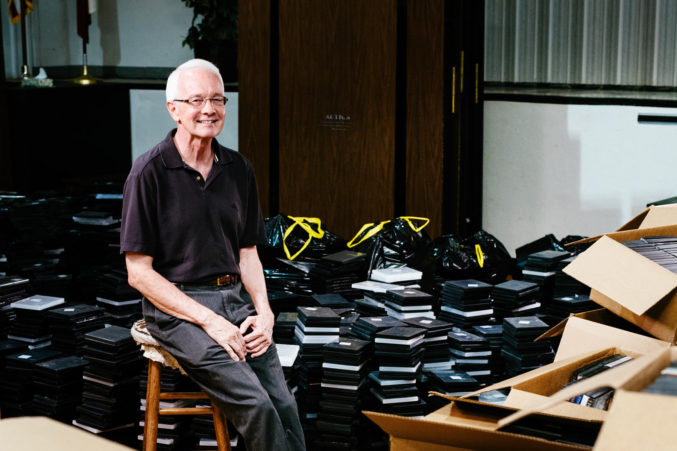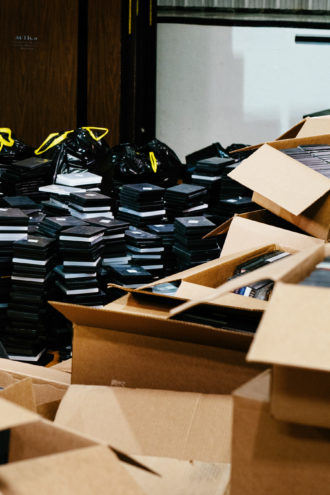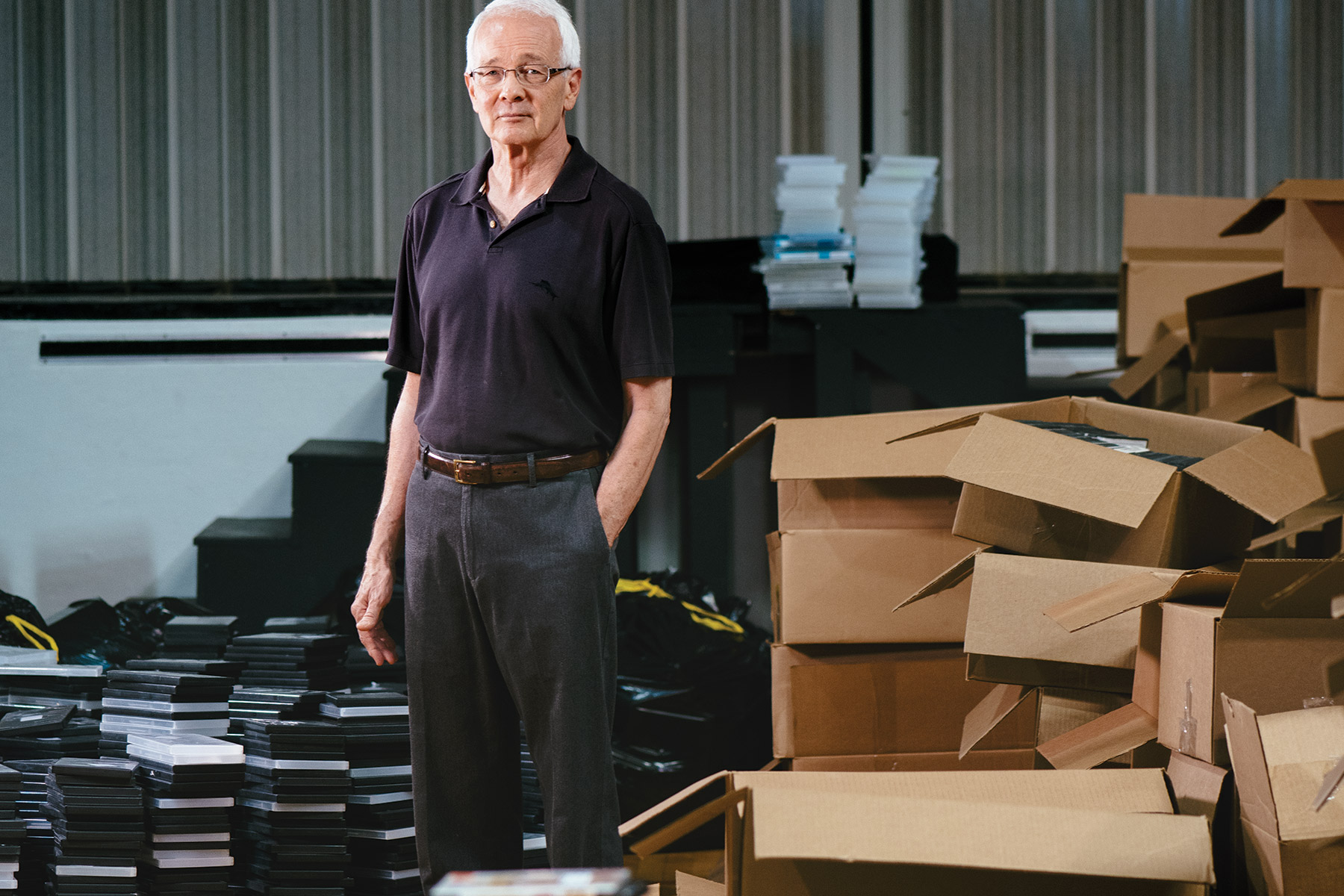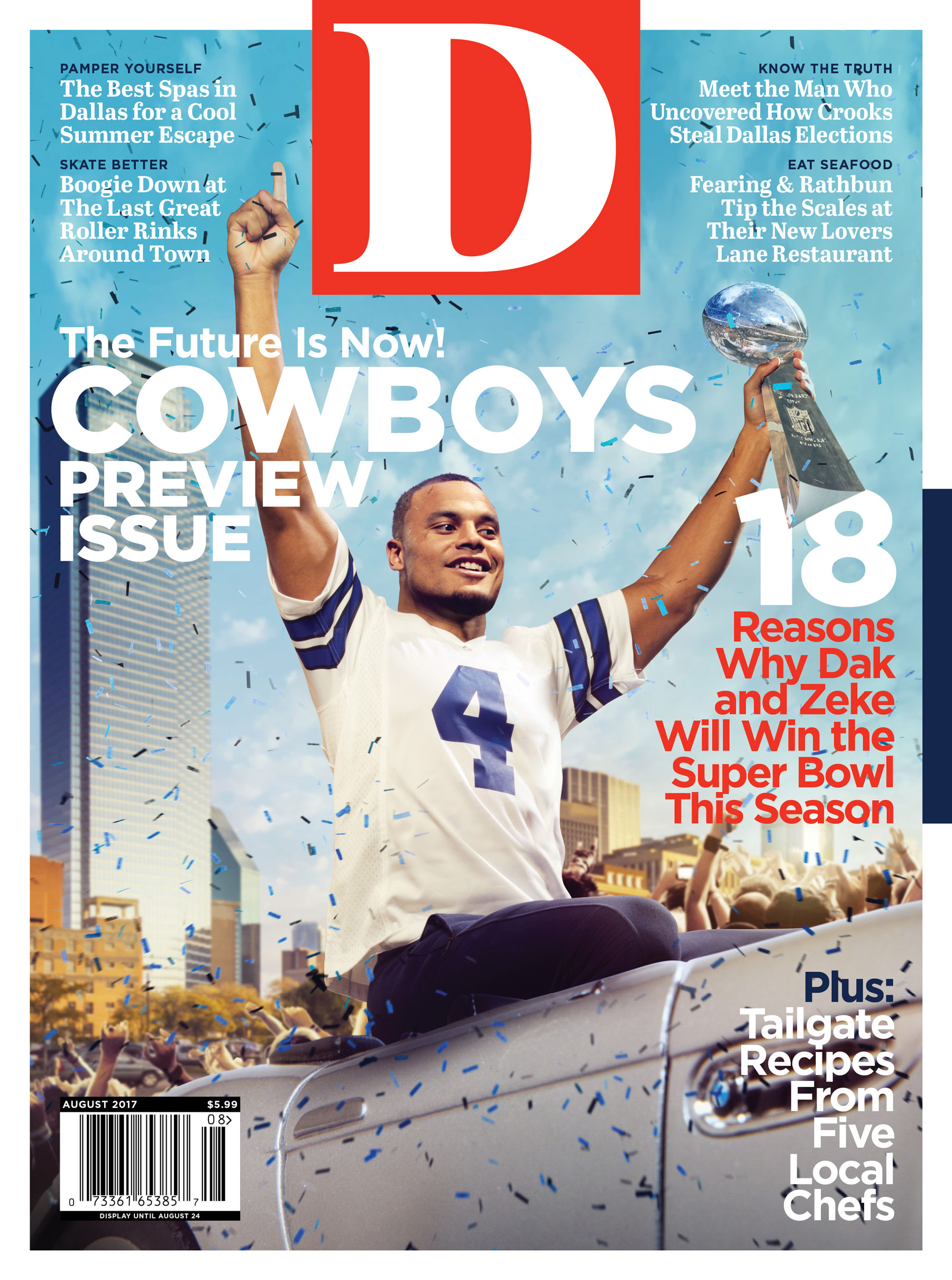One miserably hot summer day in 1993, I had four teeth yanked to make room for braces. I was 12, and I spent the rest of the day holed up in air conditioning, mouth stuffed with bloody tissue, whiling away the long hours by watching The Godfather and falling in love with the movies for the first time. Movies would come to dominate the next two decades of my life. I watched movies, re-watched movies, read about movies, and dreamed about movies. In high school, I decided I wanted to be a filmmaker. After college, I tried (and failed) to make a film, scrapped dozens of unfinished scripts, and eventually took a job where I got to write about the movies.
But back in the early 1990s, the south shore of Long Island, where I grew up, was arid terrain for a wannabe cinephile. Neighborhood movie theaters shuttered, the huge multiplexes at nearby shopping malls played a steady rotation of Hollywood releases. The local video stores, likewise, were put out of business with the arrival of a massive, gleaming blue-and-yellow Blockbuster Video. The store stocked its shelves with hundreds of copies of the latest Bruce Willis vehicle, but it reserved a couple of short shelves for classic or foreign films. My early film education relied on riding my bike to scour public library collections, staying up late to record reruns of classic films on PBS, and ordering VHS cassettes through an early mail-order subscription rental service.

Today, when thousands of films from every era and corner of the world are available simply by reaching for the phones in our pockets, it is difficult to remember a time when so many movies were available only by chance. You had no choice but to befriend the guy in your dorm with the good DVD collection. You would drive an hour if you heard a rumor about a well-stocked movie store. When I came to Dallas in the late ’90s for college and saw a plastic Premiere Video DVD rental case containing Werner Herzog’s Aguirre, the Wrath of God under some papers on the desk of a German film professor, I had to find the store.
Nothing could have prepared me for Premiere Video. The 5,000-square-foot shop on Mockingbird Lane was packed with what appeared to be nothing less than every movie ever made. Sure, they had every new release, no matter what country it was from or how small the budget, but they also seemed to have every action movie, classic Hollywood film, Western, film noir, horror, sci-fi, comedy, mystery, musical, silent, and animated film, every TV show and documentary, everything. An entire wall stretching the length of the store was dedicated to foreign films—organized by language, subdivided by notable directors. Above it, additional rows of VHS tapes—from little-known B-movies to forgotten 1970s gems—wrapped around the store. After college, I moved to Chicago and visited the famous Facets, only to become frustrated when they didn’t carry some of the more obscure fare I was looking for. When I returned to Dallas, I found them all on the shelves of Premiere Video.
Before it closed this May, Premiere Video was the Library of Alexandria of movie rental joints. It was not only one of the last video rental stores around, it was one of the best that ever existed. If you couldn’t find something, the 67-year-old owner, Sam Wade, who held court near the front counter with his big circular glasses and kindly smile, endlessly chatting about movies to anyone within earshot, would find it and order it for you. After its closing, as the eulogies began to appear in the local news—Dallas filmmakers citing the store’s influence, longtime customers mourning its loss—I couldn’t help but wonder how such a store had ever come to exist in the first place.
In 1984, Wade, then a young marine geophysicist working in oil and gas, approached a local Dallas video store called Video Works with an idea. Wade wasn’t much of a movie buff; he says at that point he probably had seen only a dozen or so films. But his wife at the time was, and he saw in video rentals a smart place to park his money and a fun way to occupy her time. Wade convinced the owners of Video Works to offer him their first franchise, and he opened his first store on Skillman Street in June 1984 and a second location on Mockingbird in January 1985.
Wade’s timing was perfect. In 1980, less than 1 percent of U.S. households owned videocassette recorders, but by 1987 that number jumped to 50 percent. Business was booming, even if in those early years video rentals still carried a whiff of sleaze.
“We were looked at as X-rated,” Wade says. “You’d call a landlord and say you wanted to go in, and they naturally thought you were an adult store.”
Wade’s two stores did well, and he also discovered he liked hanging out in them at night after work, gabbing about movies with customers. When the price of oil dropped in the late ’80s and Wade was laid off, he started working in the store full time. He got to know many of his customers and their tastes. One of them, David Cook, another oil and gas vet, had just sold his oil and gas software services company and decided to buy his own Video Works franchise. But when the Video Works owners refused to let Cook decorate the interior of his store with the blue-and-yellow design his wife had mocked up, Cook decided to open his own store instead. He called it Blockbuster Video.
When I was in my early teens, frustrated by the miserable selection at my local Blockbuster, I could never have guessed that the source of that exasperation was the fact that Cook employed his background in data software to develop a way to stock his franchises, crunching localized demographic information. At the same time, Premiere Video developed a more analog approach to its inventory. Wade and his staff talked to their customers, and they placed a piece of paper on the front counter, inviting customers to write down the movies they wanted to see. The result was the slow manifestation in video form of Dallas’ collective omnivorous cinematic appetite—and the solidifying of a loyal customer base that would sustain Premiere Video long after Blockbuster fell victim to technology that outpaced its model.

Wade is full of customer stories. Linda Marcus would call ahead when her husband, Stanley, was heading to the store to ask Wade to slip a few films she might like into the stack of shoot-’em-up action movies Mr. Stanley always rented. Bob Wilson stood in the aisles to badger customers into renting Bottle Rocket, which starred his sons Owen and Luke. Luke and Owen’s Premiere Video rental numbers were taped to the keyboards of the checkout computers because the teenage girls working behind the counter got so flustered when the actors came in that they couldn’t manage to look up their accounts. Other longtime customers included Liener Temerlin, the famed adman and co-founder of the Dallas International Film Festival; director David Lowery (Pete’s Dragon, A Ghost Story); actor Amy Acker (Person of Interest, The Cabin in the Woods); and Peabody Award-winning documentarian Thaddeus Matula (Pony Excess).
But there were also hundreds of not-so-famous Premiere Video loyalists who, when they heard the store was finally closing, flooded Wade with emails and stories about their love of Premiere and the first dates, marriages, and nearby home purchases the video store inspired. One woman walked into Premiere on its last day, saw the empty shelves, and burst into tears.
It may seem like a silly thing to cry over a video store, but I felt similarly after I heard that Premiere had shut its doors. In recent years, like so many other customers, I had stopped frequenting the store like I used to. After hearing of its demise, my mind drifted back to the feeling of first discovering it. I thought about what made me fall in love with the movies in the first place, the way movies seem to exist like dreams, taking up residence in our imaginations—fictional memories that somehow made real life feel bearable and more possible. I thought of the closed-down movie theater at the end of Giuseppe Tornatore’s Cinema Paradiso, and how in our digitally connected world, in which everything is always available at any time, it is easy to forget Tornatore’s stirring, affirming reminder that life—like cinema—is both beautiful and ephemeral.
Wade says he has known for a few years that the rental business was no longer sustainable. Long after it would have been sensible to close, he began the emotionally arduous task of packing nearly 65,000 titles into 1,000 cardboard boxes. It took 10 days. A customer found space for Wade in an un-air-conditioned gymnasium at a private K-6 school in East Dallas, and he has spent the summer sorting through the inventory. When school starts this month, Wade will have to find a new home for it all. He doesn’t know where, but he knows he doesn’t want to break up the collection.
“I could have easily opened up to a moving sale or a closing sale,” Wade explains. “And then in my mind’s eye, I saw all of the inventory being fractured around the city. It’s just not right for it to be disseminated like that. So, I thought, let’s try to do something else.”
Wade hopes he can reopen, perhaps not strictly as a movie rental store, but a place that pairs access to his inventory with programming around film events. In the outpouring of emotion that followed the closing of Premiere Video, it became apparent that his customers still need a physical space where they can find and share their movies.
“Cinema wants people to talk,” Wade says. “I want people to have a store where they can talk about cinema.”
Write to [email protected].







